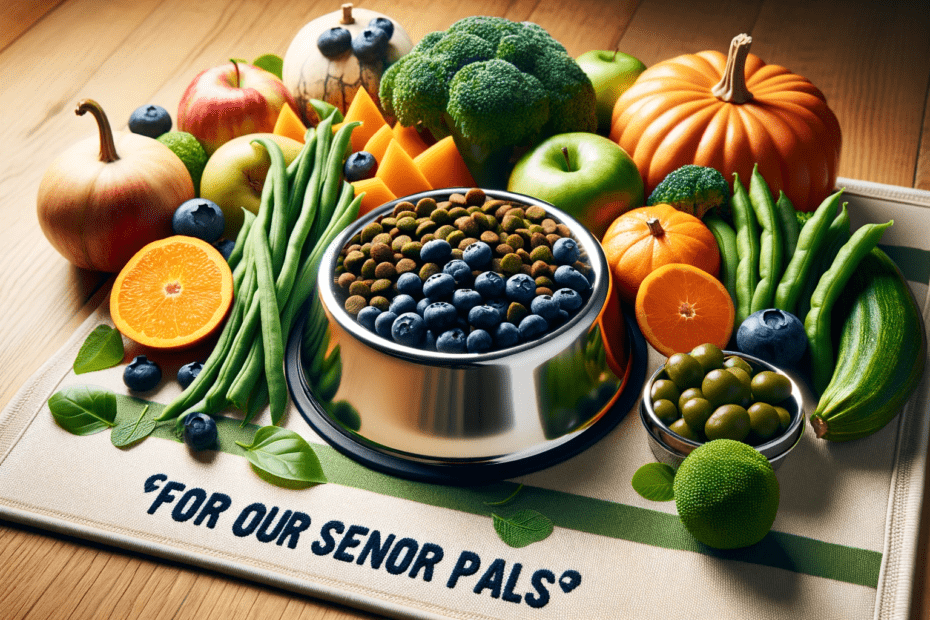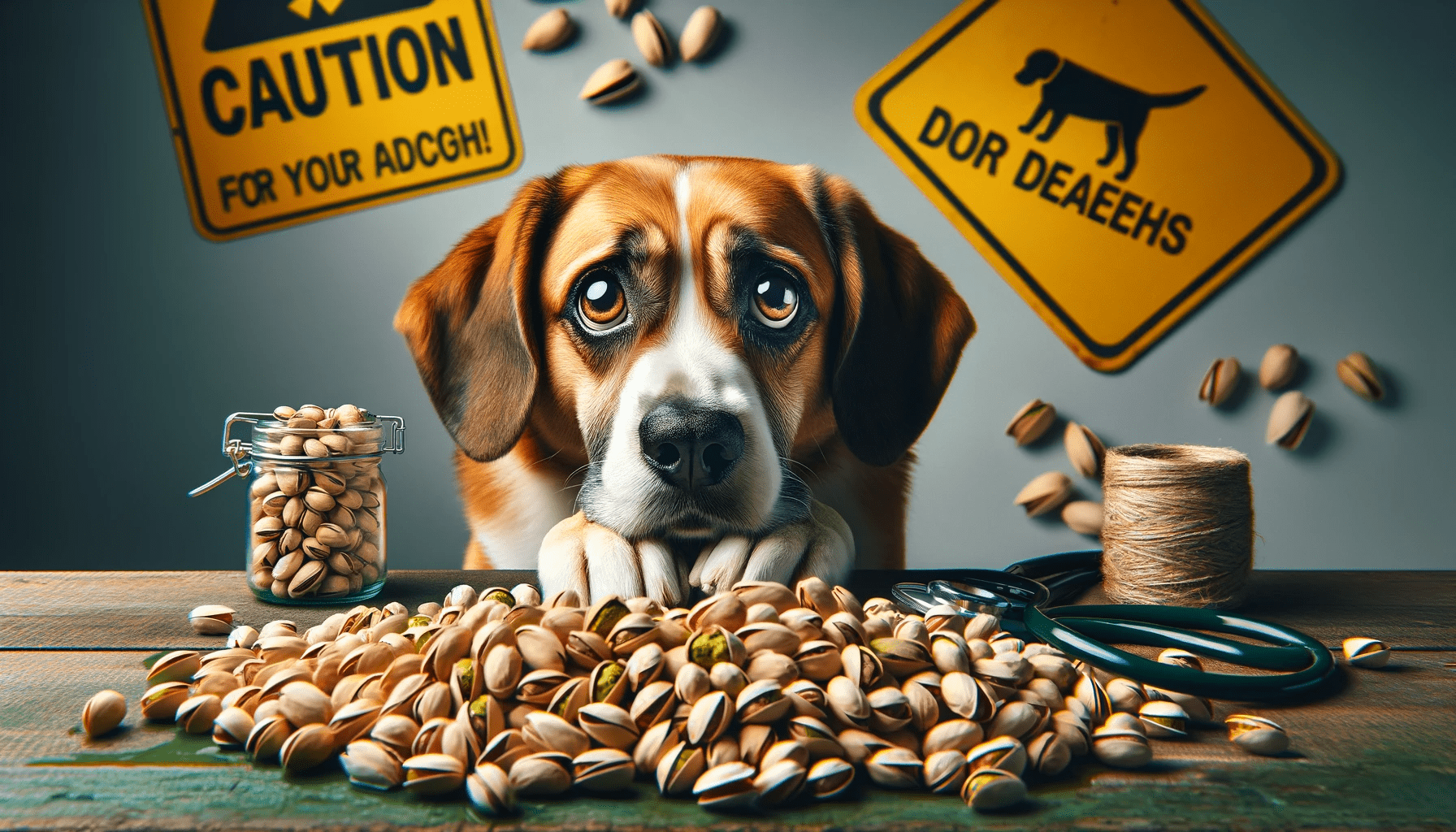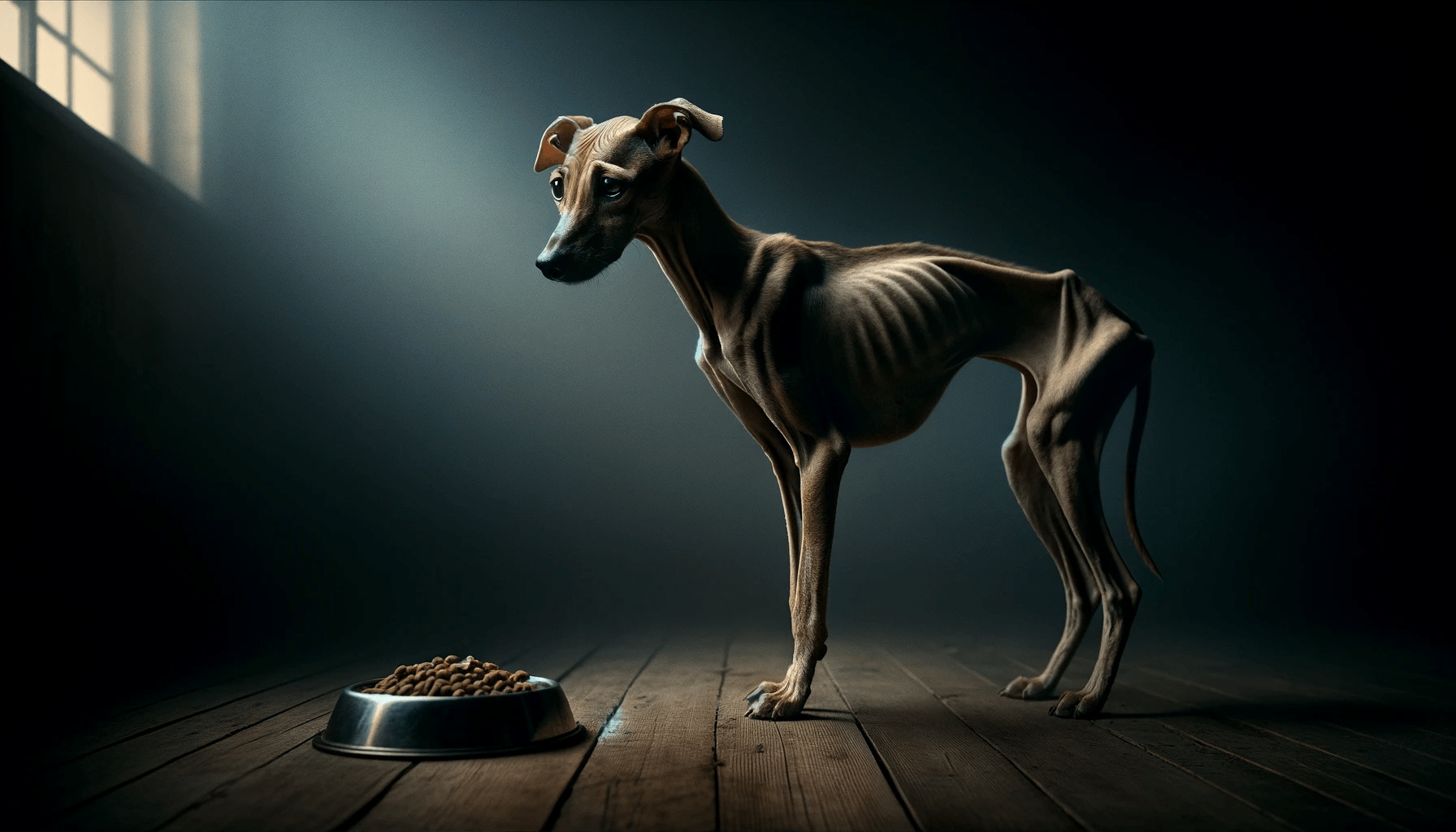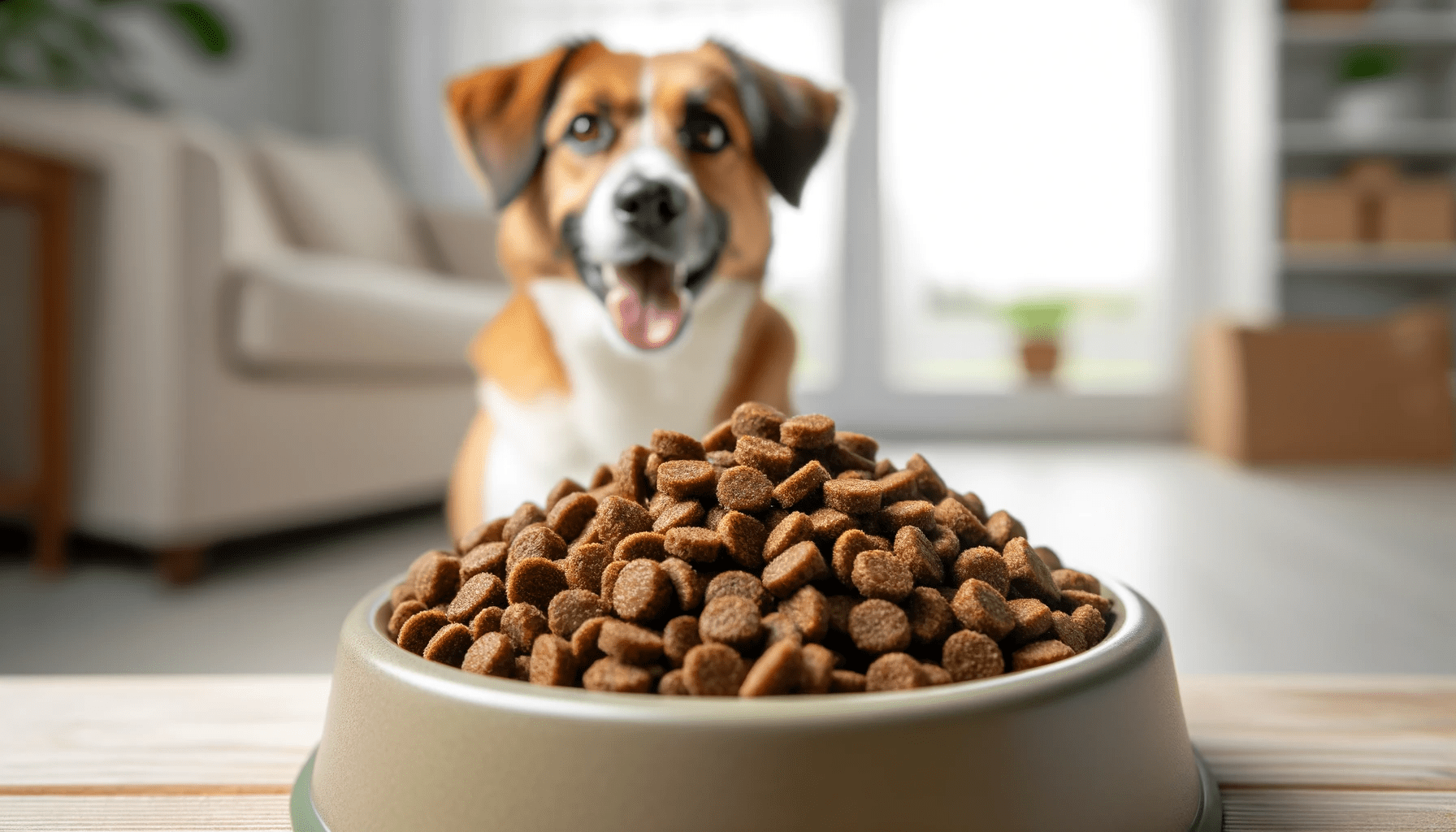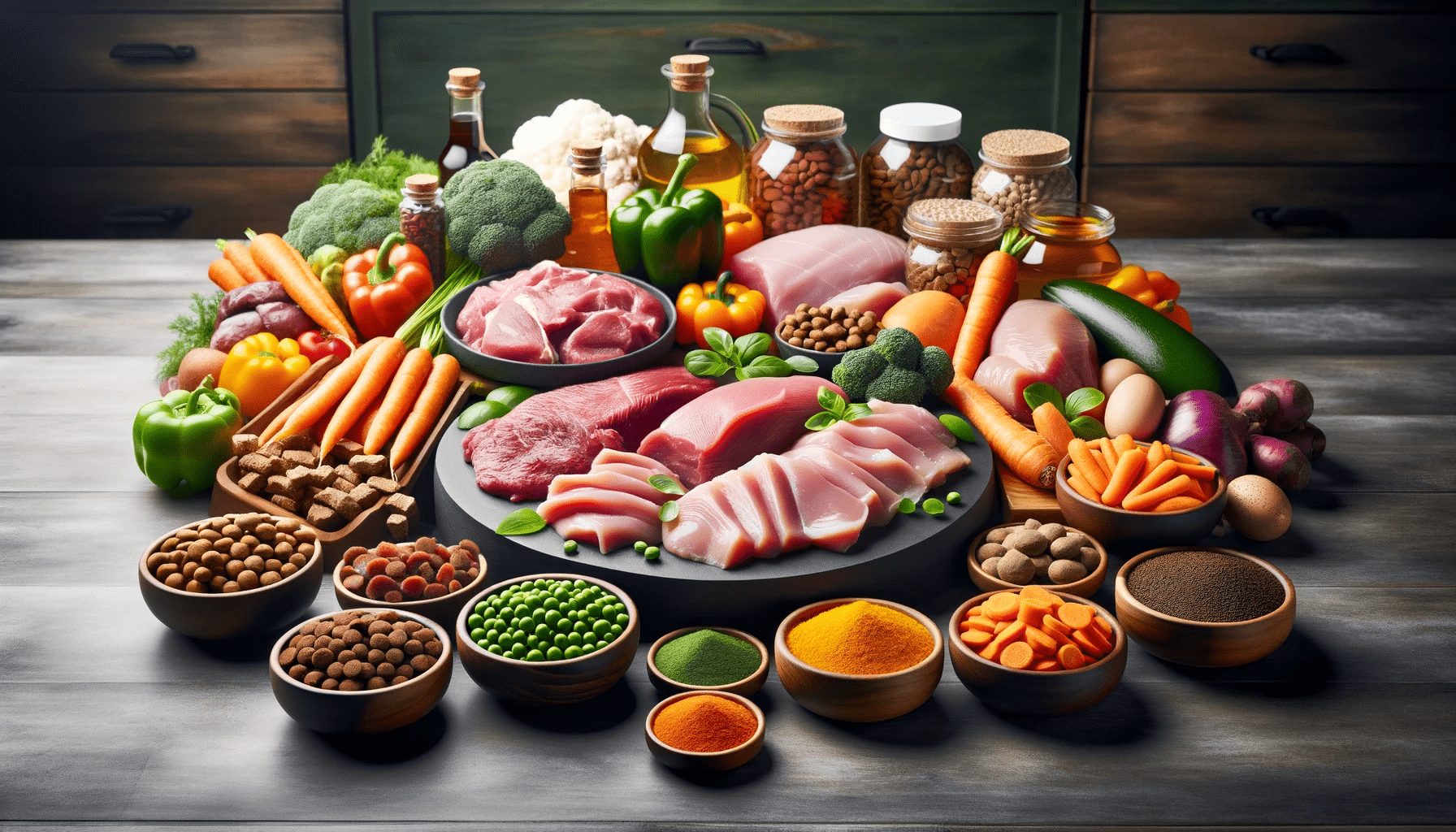Are you worried about keeping your senior dog healthy and happy? Look no further! In this article, we will provide you with 5 essential nutrition tips to ensure your furry friend's well-being.
Discover how age-related dietary changes, optimal protein intake, joint support, essential vitamins and minerals, and managing weight and portion control can make a world of difference in your senior dog's life.
So, let's get started on this journey to better nutrition for your beloved companion!
Key Takeaways
- Adjust the diet to address age-related health issues such as joint problems, decreased mobility, and dental issues.
- Choose senior dog food options formulated to support overall health and well-being.
- Maintain an optimal protein intake to support muscle strength, immune system, and overall vitality.
- Provide joint health supplements containing ingredients like glucosamine and chondroitin.
Age-Related Dietary Changes
As your senior dog ages, their dietary needs will change, so it's important to make age-related adjustments to their diet. Age-related health issues can arise in older dogs, including joint problems, decreased mobility, and dental issues.
To address these concerns, there are specific senior dog food options available that cater to their changing nutritional requirements.
Senior dog food options are formulated to support your aging dog's overall health and well-being. These specialized diets often contain higher levels of antioxidants, vitamins, and minerals to boost their immune system and promote vitality. They also have reduced calories and fat content to help maintain a healthy weight, as older dogs tend to be less active and have slower metabolisms.
In addition to the nutritional benefits, senior dog food options may include ingredients that support joint health, such as glucosamine and chondroitin. These ingredients can help alleviate age-related joint stiffness and promote mobility.
When selecting a senior dog food, it's essential to consider your dog's specific needs and any existing health conditions they may have. Consulting with your veterinarian can help you make an informed decision and choose the most appropriate diet for your senior dog.
Optimal Protein Intake
To ensure your senior dog's overall health and well-being, it's important to maintain an optimal protein intake in their diet. Protein is an essential nutrient that plays a crucial role in supporting your dog's muscle strength, immune system, and overall vitality. As dogs age, their protein requirements may change, and it becomes even more important to provide them with high-quality protein sources.
Senior dogs have higher protein requirements compared to their younger counterparts. This is because their bodies undergo various age-related changes, such as muscle loss and decreased protein absorption. Meeting these increased protein needs can help support their muscle mass, joint health, and overall energy levels.
When choosing protein sources for your senior dog, opt for lean meats like chicken, turkey, and fish. These sources aren't only rich in high-quality protein but also provide essential amino acids that are important for maintaining your dog's health. Additionally, consider incorporating other protein-rich foods such as eggs, cottage cheese, and Greek yogurt into their diet to provide a diverse range of nutrients.
It is important to note that each dog is unique, and their protein requirements may vary based on factors such as size, breed, and health conditions. Consulting with your veterinarian is crucial to determine the optimal protein intake for your senior dog. They can provide personalized recommendations and help you create a balanced and nutritious diet that meets their specific needs.
Importance of Joint Support
Maintaining proper joint support is crucial for your senior dog's overall mobility and comfort. As dogs age, their joints can become stiff and painful, making it difficult for them to move around comfortably. To help alleviate joint discomfort and support your dog's joint health, there are a few key things you can do.
Firstly, consider adding joint health supplements to your dog's diet. These supplements often contain ingredients like glucosamine and chondroitin, which can help reduce inflammation and promote cartilage health. Consult with your veterinarian to determine the appropriate dosage and type of supplement for your dog.
In addition to supplements, regular exercise is essential for maintaining joint health. Low-impact activities such as swimming or gentle walks can help keep your dog's joints mobile and flexible. Avoid high-impact activities that may put stress on their joints, such as jumping or running on hard surfaces.
It's important to note that while joint support is crucial for senior dogs, it's equally important to monitor their activity levels and not overexert them. Too much exercise can also be detrimental to their joints. Finding the right balance is key.
Essential Vitamins and Minerals
To ensure your senior dog receives the necessary nutrition, it's important to understand the essential vitamins and minerals they require. Just like humans, dogs can also experience vitamin deficiencies, which can lead to various health issues. Vitamin deficiencies in senior dogs can affect their immune system, bone health, and overall vitality. Therefore, it's crucial to provide them with appropriate vitamin supplementation.
One essential vitamin for senior dogs is vitamin D. This vitamin helps regulate calcium and phosphorus levels, promoting strong bones and teeth. Additionally, vitamin D plays a crucial role in supporting the immune system and muscle function.
Another important vitamin is vitamin E, which acts as a powerful antioxidant, protecting cells from damage caused by free radicals. It also promotes healthy skin and coat.
In addition to vitamins, senior dogs may also benefit from mineral supplementation. Minerals like calcium, phosphorus, and magnesium are necessary for maintaining strong bones and teeth. Zinc is another important mineral that supports healthy skin, while iron helps transport oxygen throughout the body.
It's important to note that while some commercial dog foods contain vitamins and minerals, they may not provide sufficient amounts for senior dogs.
Consulting with a veterinarian is essential to determine the specific vitamin and mineral needs of your senior dog. They can recommend appropriate supplements or suggest dietary changes to ensure your furry friend receives the necessary nutrients for a healthy and happy life.
Managing Weight and Portion Control
You can effectively manage your senior dog's weight and portion control to ensure their overall health and well-being. Here are some tips to help you in this process:
- Monitor their calorie intake: Consult with your veterinarian to determine the appropriate daily calorie intake for your senior dog based on their breed, age, and activity level.
- Measure their food: Use a measuring cup or scale to accurately portion your dog's meals. This will help prevent overfeeding and maintain a healthy weight.
- Establish a feeding schedule: Stick to a consistent feeding schedule to prevent your dog from grazing throughout the day. This will also help you keep track of their food intake.
- Provide regular exercise: Engage your senior dog in regular physical activity, such as daily walks or gentle play sessions. This will help them burn calories and maintain a healthy weight.
- Consider senior-specific dietary supplements: Talk to your veterinarian about senior-specific dietary supplements that can support your dog's joint health and overall well-being.
Frequently Asked Questions
Can a Senior Dog's Diet Be Completely Free of Protein?
You can't have a senior dog's diet without protein. Protein is essential for their overall health and well-being. However, if your senior dog has specific dietary restrictions, there are protein alternatives available that can meet their nutritional needs.
What Supplements Can I Give My Senior Dog for Joint Support?
You can give your senior dog supplements for joint support to help alleviate any discomfort or stiffness. There are also alternative options available for joint support in senior dogs that you can consider.
Are There Any Specific Vitamins and Minerals That Should Be Increased in a Senior Dog's Diet?
To meet the increased nutrient requirements of senior dogs, specific vitamin and mineral supplements can be added to their diet. These supplements can help support their overall health and address any deficiencies that may arise with age.
How Often Should I Adjust My Senior Dog's Portion Size to Manage Their Weight?
To manage your senior dog's weight, adjust their portion size as needed. Regular exercise is also essential for their overall health. Be sure to consult with your veterinarian for specific guidance and recommendations.
Can I Feed My Senior Dog the Same Amount of Food as When They Were Younger?
You should adjust your senior dog's portion size as their metabolism slows down. Feeding them the same amount of food as when they were younger could lead to weight gain or nutrient deficiencies.
Conclusion
In conclusion, ensuring proper nutrition for senior dogs is essential for their overall health and well-being. Age-related dietary changes, optimal protein intake, joint support, vitamins and minerals, as well as weight management and portion control, are all important factors to consider.
By following these essential nutrition tips, you can help your senior dog stay healthy, active, and happy in their golden years. Remember to consult with your veterinarian for personalized dietary recommendations based on your dog's specific needs.
